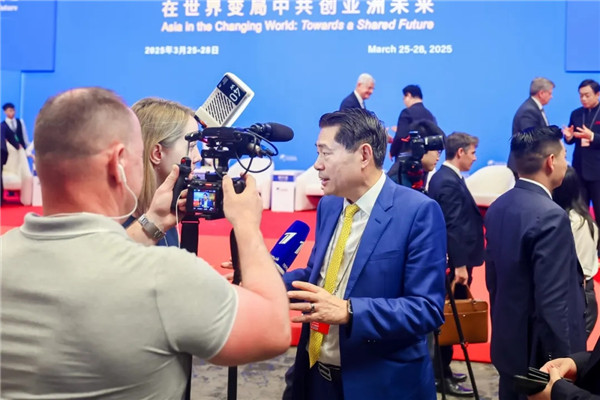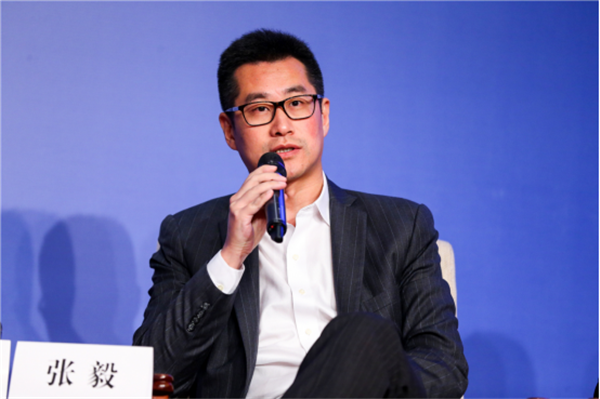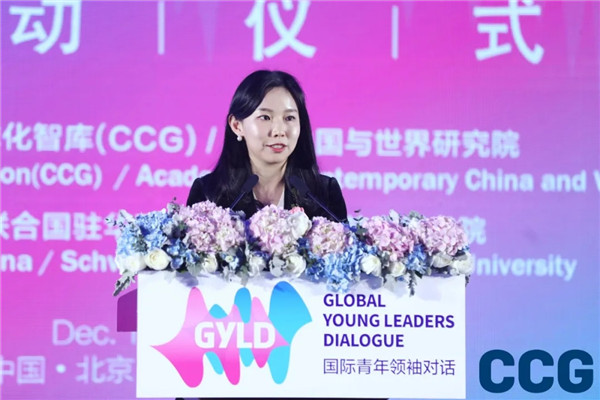熊晓鸽:中国风险资本之父
2014年5月30日Hugo Shong scrawls a number on a whiteboard in a conference room of the sixth-floor offices of IDG Capital Partners in the Dongcheng District of Beijing.
“Three hundred million,” he says. “That’s how many people are in the United States.”
He writes again.
“About 40,000,” he says. “That’s how many movie screens are in the United States, OK?”
Shong (COM’87, GRS’90) pauses a moment for emphasis, then raises his blue marker to the whiteboard.
“So in China there are 1.3 billion people, and we have 16,000 screens by 2012.”
The message is that China, for all of its explosive commercial development, is still tens of thousands of theaters shy of its optimum number. The message says opportunity.
Shong, founding general partner of IDG Capital Partners and chairman of IDG Greater China, as well as a BU trustee, has been sounding out opportunities for two decades, and most of them involve the application of an American business model to the world’s fastest growing economy. In the early 1990s, Shong started publishing a Chinese edition of a technology magazine that had been produced for years in the United States. In 1993, he launched the first venture capital firm in China. Next came big-brand consumer magazines, a television game show, then movies, an outdoor concert venue modeled on Tanglewood, and most recently, Broadway-style theater.
Shong, who according to China Daily is known as “the godfather of Chinese venture capital,” has cut a broad and somewhat unusual path to success in the new China. Huiyao Wang, director general of the Center for China & Globalization, a nonprofit think tank based in Beijing, says most entrepreneurial “returnees”—Chinese who were educated abroad—put their Western education to work building technology companies. And while Shong has made many profitable investments in internet companies, his daily efforts often focus on softer markets: publishing and entertainment.
He now publishes more than 40 magazines, most with American titles, including Cosmopolitan, Harper’s Bazaar, National Geographic, and Men’s Health, and his IDG China fund has invested in nearly 300 companies, including Chinese internet behemoths like Baidu, Sohu, Tencent, and SouFun. In May 2012, China Daily put the value of his venture capital fund at $3.8 billion, which happens to be 100 million times what Shong says he had when he arrived at BU’s College of Communication in 1986.
Like most Chinese people older than 50, Shong felt the burden imposed by the Cultural Revolution, Mao Zedong’s dictate that from 1966 to 1976 forced “bourgeois” elements who he thought posed a threat to Communism to be reeducated by working as laborers on farms and in factories. As a young man, Shong spent four years working as an electrician in a factory.
“I made the equivalent of $6 a month,” he says. “Life was different because of the Cultural Revolution. We didn’t have the chance for a normal education. That’s why we appreciate the opportunity and why we always try to have some kind of dream.”
When the Cultural Revolution came to an end in the late 1970s, Deng Xiaoping, then China’s leader, championed broad economic reforms, including the opportunity to get a college education. Shong was ready to go. “My happiest memory was in college,” he told China Daily. “I could take classes and learn new things every day. I always thought, isn’t that the most wonderful thing in the world.”
Shong graduated from Hunan University and took graduate courses in journalism at the Chinese Academy of Social Sciences, where he won a scholarship to COM.
$38 and a dream
He arrived in Boston, he says, with $38 and a dream of being the best journalist in China. He finished what was supposed to be a two-year program in eight months, and in 1988 enrolled in the Fletcher School of Law and Diplomacy at Tufts University, where a professor helped him get an internship at Cahners, a publisher of trade magazines such as Variety and Publishers Weekly. “On the first day, I helped them negotiate a contract to publish four issues of Electronic Business in China,” Shong recalls. “They offered me a job.”
Shong attributes much of his success to two things: an ability to recognize opportunities and a willingness to seize them. When the Fletcher School was seeking a corporate sponsor for a dinner whose special guest was a Chinese business leader, he persuaded Cahners to pitch in.
At the dinner, the sociable Shong hit it off with another publisher of trade magazines, Patrick McGovern, the founder and chairman of International Data Group (IDG). Three years later, when Cahners rejected Shong’s proposal to publish another magazine in China, he rewrote the business plan around Network World, one of McGovern’s magazines.
“I had worked at Cahners 16 hours a day for 3 years,” says Shong. “I learned so much about the publishing business. But what I really learned about was venture capitalism and entrepreneurship. And I thought that China was an opportunity.”
McGovern read Shong’s proposal and invited him to a meeting that Shong recalls as an intense and interesting three-hour discussion. Finally, McGovern asked a question: if he were to fund Shong’s plan, how much would he expect to be paid? Shong told him $42,000, the same salary he was getting at Cahners. He also asked that he report directly to McGovern. McGovern had a slightly different idea. He offered Shong $50,000, to be reconsidered in six months, when he had a better idea of what Shong’s efforts were worth. Half a year later, the two met again.
“I said, ‘Pat, what do you think?’” recalls Shong. “‘Have I met your expectations?’ He said, ‘Hugo, you have exceeded all of my expectations.’ And he doubled my salary.”
In 1992, Shong brought another, and much bolder, idea to McGovern: he wanted to start a venture capital fund in China. “Everything I knew about venture capital I learned from being a reporter and writing about it,” he says. “I really didn’t know much, but I knew people who did, so I talked to people at venture capital firms, such as Hambrecht & Quist and Schroder Ventures.”
Now a believer, McGovern gave Shong $10 million in seed money, and he was given another $10 million by the government of Shanghai.
“I learned a lot from Pat McGovern,” he says. “He had a philosophy of ‘Let’s try it.’ I learned to identify opportunities, and he was willing to bet on me.”
McGovern’s bets paid off. Shong’s fund directed investment to several internet start-ups, including Baidu, Tencent (QQ), Sohu, Ctrip, and SouFun, companies that today are among the most successful in China. More than 70 of the companies fueled by Shong’s money have gone public or sold for high returns in the last 20 years.
“Hugo made investments in virtually every one of the highly successful technology-based companies starting in China during the 1990s,” says McGovern. “Under his leadership, IDG Technology Venture Investment averaged 800 percent growth on its investments. Hugo and his general partners now manage $4.4 billion of investment funds in China, and they continue to get outstanding results.”
Shong and McGovern, whose initial magazines focused on technology and business, expanded their Chinese publishing to include consumer magazines, which flourished in China even while they flagged in the United States. The September 2013 issue of Cosmopolitan had more than 600 pages of editorial content and ads, and Harper’s Bazaar was so fat that it had to be printed in two parts. Shong says Men’s Health and National Geographic are also thriving, as American advertisers rush to get their products in front of China’s increasingly prosperous and brand-conscious consumers.
“Hugo grew IDG’s media business from 2 publications in 1990 to over 40 joint-venture magazines, newspapers, and websites today,” says McGovern. “Those include all the leading consumer magazines on fashion, jewelry, automobiles, travel. Hugo also has arranged to establish three centers for neuroscience studies at leading universities in China with philanthropic funding support of over $30 million.”
No entertainment stone unturned
Movies were next on Shong’s list, and with good reason. The New York Times reports that China’s domestic box office was expected to hit $3.5 billion in 2013, making it the world’s second largest, behind the United States. Shong, whose IDG Media Fund has invested in several films, among them last year’s 21 & Over, says American filmmakers are “very good at making movies, but really poor at capturing culture.” He says there are many classic Chinese stories that could and should be made into movies.
“I know people in Hollywood,” he says. “And I see the potential to train American students to make movies in China.”
Toward that end, Shong last year funded a scholarship program that will send nine fellows of the American Film Institute (AFI) to China for cultural research that will support feature-length screenplays. The AFI/IDG China Story Fellowship gives the screenwriters a full scholarship to a second year at the AFI Conservatory, where they can develop their projects.
“Too many Americans know Chinese culture through Kung Fu Panda and Mulan,” says Shong. “But China has a remarkable and distinguished history. Americans deserve to see other types of movies about China, movies that can educate them and touch their hearts.”
Three years ago, Shong also founded Looking Beijing, a partnership program between Beijing Normal University (BNU) and IDG that sends eight Boston University film majors to Beijing for 10 days each summer. There they are paired with a communications major at BNU and set loose in the city to film short documentaries on subjects they choose.
“The US students take the lead in the creative part, and the Chinese students are producers,” says program coordinator Roni Zhang (COM’08). “The BU and Chinese students work one-on-one, so it’s not just about making a movie in the end. The process of making the movie itself is interesting.”
In 2006, Shong became the face of Chinese entrepreneurship, literally, when he signed on as one of three leading judges on the popular television show Win in China, which gave $5 million in venture capital funding to the contestant with the most viable business plan. The show attracted tens of millions of viewers, who shared on social media Shong’s often-witty remarks.
Shong sometimes seems unwilling to leave any entertainment stone unturned. Since 2010, his IDG Media Fund has been organizing the annual Beijing Great Wall Forest Festival in the Music Valley, an outdoor concert venue next to the Great Wall that is modeled on the Tanglewood Music Festival in Lenox, Mass. He plans to expand the park, one hour from Beijing, to include indoor and outdoor theaters, hotels, and villas.
In April 2013, true to his formula of translating American know-how to Chinese business, Shong sent a team from his media fund to New York to meet with the Nederlander Organization, which owns nine Broadway theaters and is known around the world for its production expertise. Shong says he hopes to produce in China “the kind of beautiful musicals” seen in New York theaters.
“What China has now is a huge market,” he says. “What the United States has is a place to learn. It has the best education system, and it has competitiveness. I think that over the next 20 years, the two countries will make a big difference in the world, socially, culturally, as well as economically.”
This article is part of a special report on China published in the winter-spring issue of Bostonia.






